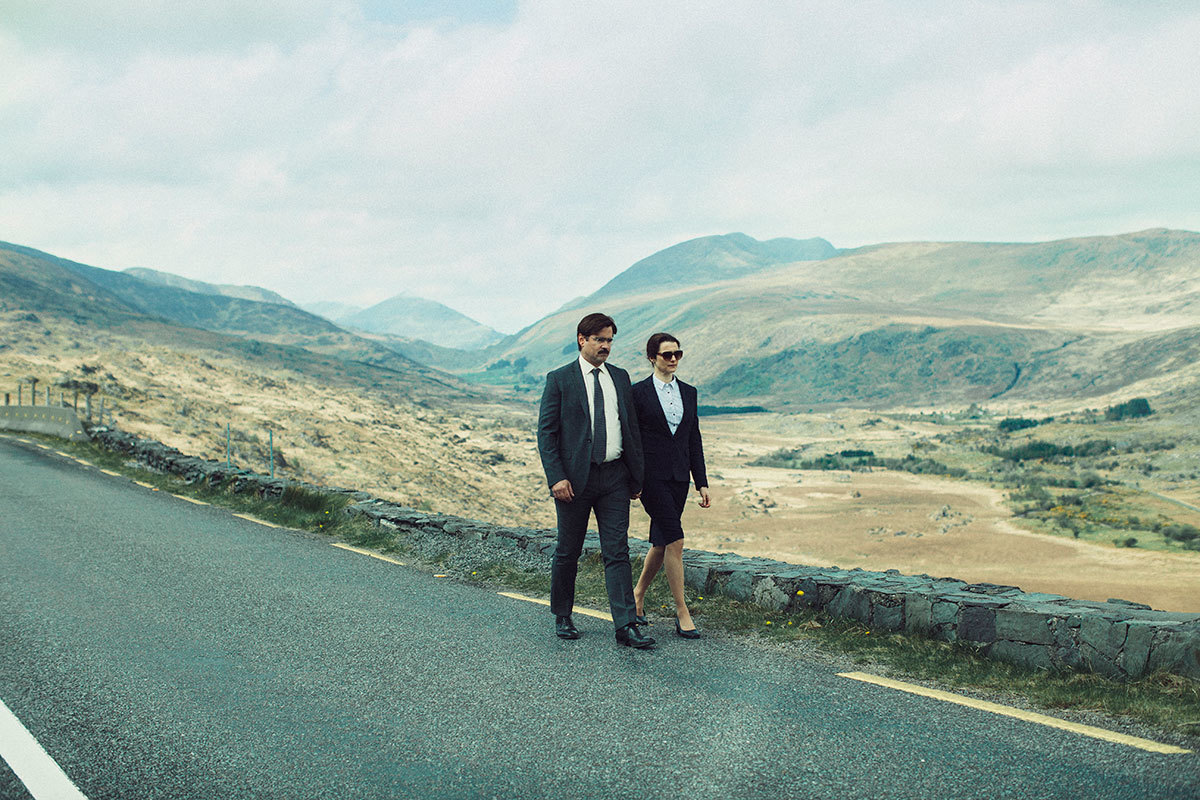
Visionary Greek director Yorgos Lanthimos has mastered the art of what I’ll call banal dread. His films, which are ultra-dark comedies at heart, have a blandness about them, a sense of orderliness and normalcy that belies the horrors on screen. In his breakthrough hit, Dogtooth, that faux normalcy was precisely the point—the young women being held captive by their father were led to believe that their isolation was not unique. From the limited perspective inside their bunker, their world seemed perfectly average.
Now, with The Lobster, Lanthimos has challenged our notion of normalcy once again. In this alternate reality—not entirely unrecognizable from our own—coupledom is valued above all else. Single people are sent to a resort where they have 45 days to find a suitable mate. If they don’t, they will be turned into the animal of their choosing. All of this is done with the utmost civility and professionalism. The resort acts as a kind of advertisement for coupling up—they stage public PSAs, where they demonstrate the benefits of having a mate (in one skit, a man chokes on his dinner but has no wife to perform the Heimlich maneuver). The resort has another weird quirk—they make a couple’s compatibility paramount, and not just, say, a shared affection for romance novels. The compatibility must have a physical or psychological component—both parties must have a limp, or get nose bleeds, or share the same mental disorder. Here, Lanthimos is taking the notion of compatibility—so revered on dating sites—to its natural extreme.
Our hero in all of this is recently divorced David (a paunchy Colin Farrell, sporting a brush mustache), who comes to the resort with a border collie in tow that turns out to be his brother (“He was here a couple of years ago,” he says matter-of-factly, “but he didn’t make it.”) David chooses to be a lobster, for a series of arcane reasons (they have blue blood, for one), but the real answer might be that he likes their protective shell. He quickly makes two friends—a wan, if handsome, widower with a limp (Ben Whishaw) and a sadsack who lisps (John C. Reilly). The clock is ominously ticking—each morning a recording greets David and pleasantly tells him how many days are remaining in his stay.
There is, however, a way to get more time at the resort. Each room is outfitted with a tranquilizer gun and 12 bullets. Every day, the guests are dispatched to the woods, where they are told to hunt down and capture (but not kill), escaped “loners.” The more captures, the more days added to your stay. One sadistic woman who is skilled at such captures—and who takes an undeniable glee in them—manages to stay at the resort indefinitely.
Eventually, David does find a woman he loves (Rachel Weisz), although to tell you how they meet would be giving too much away. Suffice to say, she’s near-sighted and so is he, a commonality he clings to so fiercely, he holds down a rival suitor to check his eyeballs for contact lenses.
This is another surrealist masterpiece from Lanthimos, whose deadpan sensibilities extend to every aspect of the film, including the visuals (the film is wonderfully shot by Thimios Bakatakis). Many frames are shot slightly off-center, or with the focus on only one face, to disorient the viewer just the tiniest bit. The score is punctuated by jarring bits of loud and discordant string music, mirroring the abrupt bursts of violence that also disrupt the film.
There is so much more, but part of the (perverse) pleasure of The Lobster is how it keeps you off guard, never lets you feel settled. And of course, like all good science fiction, it will have you reflecting on your own reality, your own obedience to authority and blind faith in the status quo. Also, not for nothing, the film starts one of the best post-film discussions ever: What animal would you choose to be?
